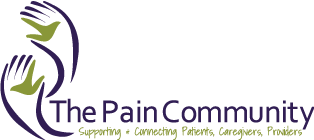A Nation in Pain: Treating Our Nation’s Biggest Health Problem

Out of 238 million American adults, 100 million live in chronic pain. And yet the press has paid more attention to the abuses of pain medications than the astoundingly widespread condition they are intended to treat. Ethically, the failure to manage pain better is tantamount to torture. When chronic pain is inadequately treated, it undermines More Info »
Managing Pain Before It Manages You

Focuses on ways people living with pain can play an active role in their pain treatment plan through the use of mind-body techniques to lessen the focus on pain, calm the body’s natural response to pain stimuli and increase their activity level an excellent tool to guide the reader through various techniques, behaviors and ‘attitude More Info »
Mayo Clinic Guide to Pain Relief

Provides a fairly comprehensive outline of the issues involved when dealing with chronic pain written easy-to-comprehend language and large print. The simple nature of the explanations of the full chronic pain experience are included—from the pain itself to different treatments and related issues, such as specific suggestions for self-care (e.g., weight loss, quit smoking, setting More Info »
PAINS Policy Brief #4: Opioid Treatment Agreements or “Contracts”

Pain care in the United States presents a complex set of challenges. On the one hand, there is ample documentation that pain, especially chronic pain, is often not well managed, and that as the Institute of Medicine has stated, we need a “cultural transformation in how pain is judged, managed and treated” to advance pain More Info »
PAINS Policy Brief #3 Summary: Pain & Policy Studies Group Report Card

Summary for policy brief List of current legislative barriers for each state This policy brief is a product of the Pain Action Alliance to Implement a National Strategy (PAINS), in collaboration with the Center for Practical Bioethics, the American Academy of Pain Management (AAPM), and the Pain and Policy Studies Group (PPSG) at the University More Info »
PAINS Policy Brief #3: Pain & Policy Studies Group Report Card

Healthcare practice, including pain management, is governed at the state level and not by federal laws. Numerous barriers continue to affect the provision of pain care. A prevalent barrier is the presence of state policies that create undue restrictions or practice ambiguities. Healthcare professionals need to understand the state statutes and regulatory policies that govern More Info »
PAINS Policy Brief #2 Summary: Prescription Monitoring Programs

Despite wide agreement that prescription monitoring programs (PMPs) can be valuable healthcare delivery tools and extremely effective at preventing “doctor shopping,” PMPs remain under-utilized, with most states reporting approximately one-third or fewer of authorized prescribers and dispensers using them. Undoubtedly, one of the most important policy needs around PMPs involves ways to promote widespread, even More Info »
PAINS Policy Brief #2: Prescription Monitoring Programs

Prescription monitoring programs (PMPs, also known as prescription drug monitoring programs, or PDMPs) are state-operated databases that collect, store, and distribute information about controlled substance prescriptions. The specific characteristics of these programs (e.g., which controlled substance schedules are included, who can access the data, which agency runs the program, etc.) can vary from state to More Info »
PAINS Policy Brief #1: Impact of State Policy and Regulation on Those Living with Chronic Pain

Pain is one of the most devastating public health problems affecting Americans today. In 2011, the Institute of Medicine (IOM) published Relieving Pain in America: a Blueprint for Transforming Prevention, Care, Education and Research, articulating the magnitude of this issue. Not including children, veterans and those who are institutionalized, the IOM reported that at least More Info »
